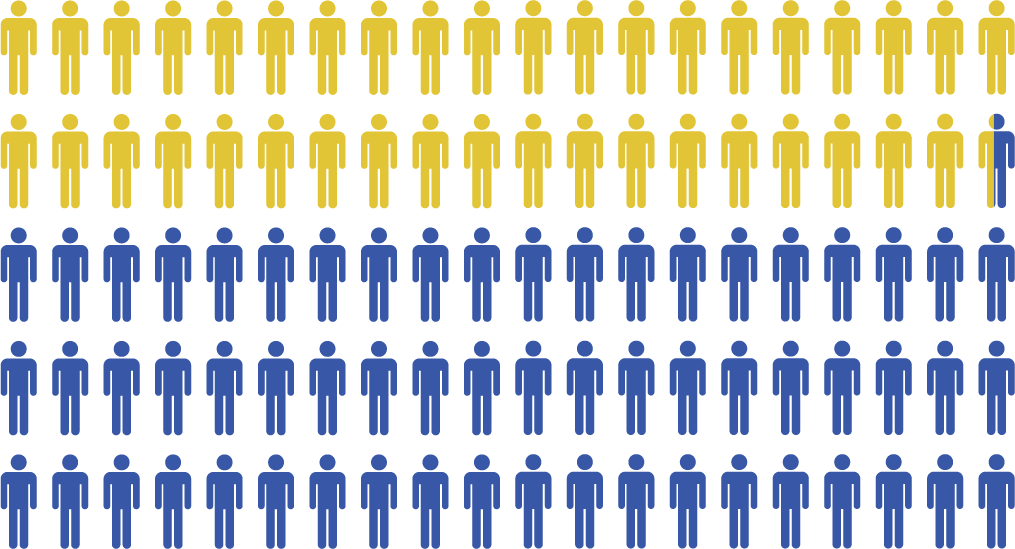A recent emergency order by Ted Wheeler was put in motion this week. The objective was to remove houseless camps along high-crash corridors and freeways, but some Portlanders and advocacy organizations met the order with disapproval. Wheeler received a letter in immediate response with signatories such as Oregon Walks, Central City Concern and Street Trust, offering suggestions that focused on making these busy streets safer rather than sweeping the camps.
Has Wheeler’s best interest for the houseless population been too poorly planned?
The city is working to move houseless camps out of harm’s way, preventing future accidents to come. This is a good thing, right?
Well, not really.
Fast cars, reckless driving and poor visibility do result in the death of pedestrians. However, the city may merely be using the order as a means to move these camps while not addressing the reasons behind traffic deaths.
Wheeler has good intentions—just not the best execution. While he may be thinking about the campers’ best interests, the issue isn’t as straightforward as he claims it is. Camping along freeways and high-crash corridors is not safe to be sure, but asking people to leave and removing their camps can’t be the solution. The housing crisis can’t simply be swept away. The answer can, at times, feel unsolvable.
Additionally, without a place to go, people may just come right back after the sweeps. In Willamette Week’s article on the emergency order, Wheeler claimed that the order allows the city to swiftly remove campers who move back, hence his statement, “There will be no path to return.”
We can look at what Wheeler issued as countering the 9th Circuit Court’s Martin v. Boise ruling, which basically states that the city can’t move urban campers without first providing some sort of shelter to house them. It does not state in Wheeler’s emergency order whether bedding and housing supplies will be provided after the sweeps, begging the question as to whether the action is ethical—or even legal.
It seems like a pretty clear violation of the Martin v. Boise. It is called a sweep for a reason—it is not a repositioning based on humanitarian concerns.
This constant shuffling of the houseless community seems to be moving our societal problems in a circular fashion rather than creating a path out of them. With this emergency order, we must think about the next steps.
We can only hope Wheeler has plans for something bigger and better.
People are often scared of flying but frankly, we need to be more scared of driving. Can you imagine how many people would stop flying if they saw that 10,000 people die in plane crashes every year? Seeing that number can be anxiety inducing, but that’s the number of people that die every year due to drunk driving alone.
According to the Association for Safe International Road Travel, “more than 38,000 people die every year in crashes on U.S roadways.” Driving is inherently dangerous, and more often than not, drivers are not spending 30 minutes to an hour doing pre-driving measures like pilots do. If you’re like me, you get into your car, load up your aux to something tasteful and head to your destination. It doesn’t take much for an error to occur.
In another of Sophie Peel’s Willamette Week articles, she stated that the Portland Bureau of Transportation reported that “63 people died in traffic last year and one-third of them were homeless.”
Anyone could be hit by a car. When we cross the street on foot, we all run the risk of being hit—even when we have the right-of-way. The issue lies within a culture where driving is such a part of our everyday life, and goes unquestioned.
The houseless epidemic and soaring traffic fatalities are real problems. We should be addressing these problems by focusing on the driving aspect, so we can avoid these deaths to keep the houseless population and other pedestrians safe.
Advocates have responded to Wheeler’s order with a letter suggesting methods to lower traffic deaths. They recommended that, instead of the measure, Wheeler should be “closing high-crash corridors to drivers with an emergency order, reducing the speed limit to 25 miles per hour on all city-owned roads, and increasing visibility at 350 of the city’s busiest intersections.”
38,000 deaths a year on U.S. roadways sounds like more of an emergency situation than the mere presence of people camping by these freeways. The emergency order is misdirected—we should focus our attention on the obvious issue at hand.
Portland is a very accessible city. Maybe the next emergency order should be to encourage biking to work Monday through Friday, both to cut down on emissions and make the roads a safer place to ride. The city could take some inspiration from the more bikeable cities in the world and see how that goes—because driving might be the actual emergency we really need to address with this kind of order.






